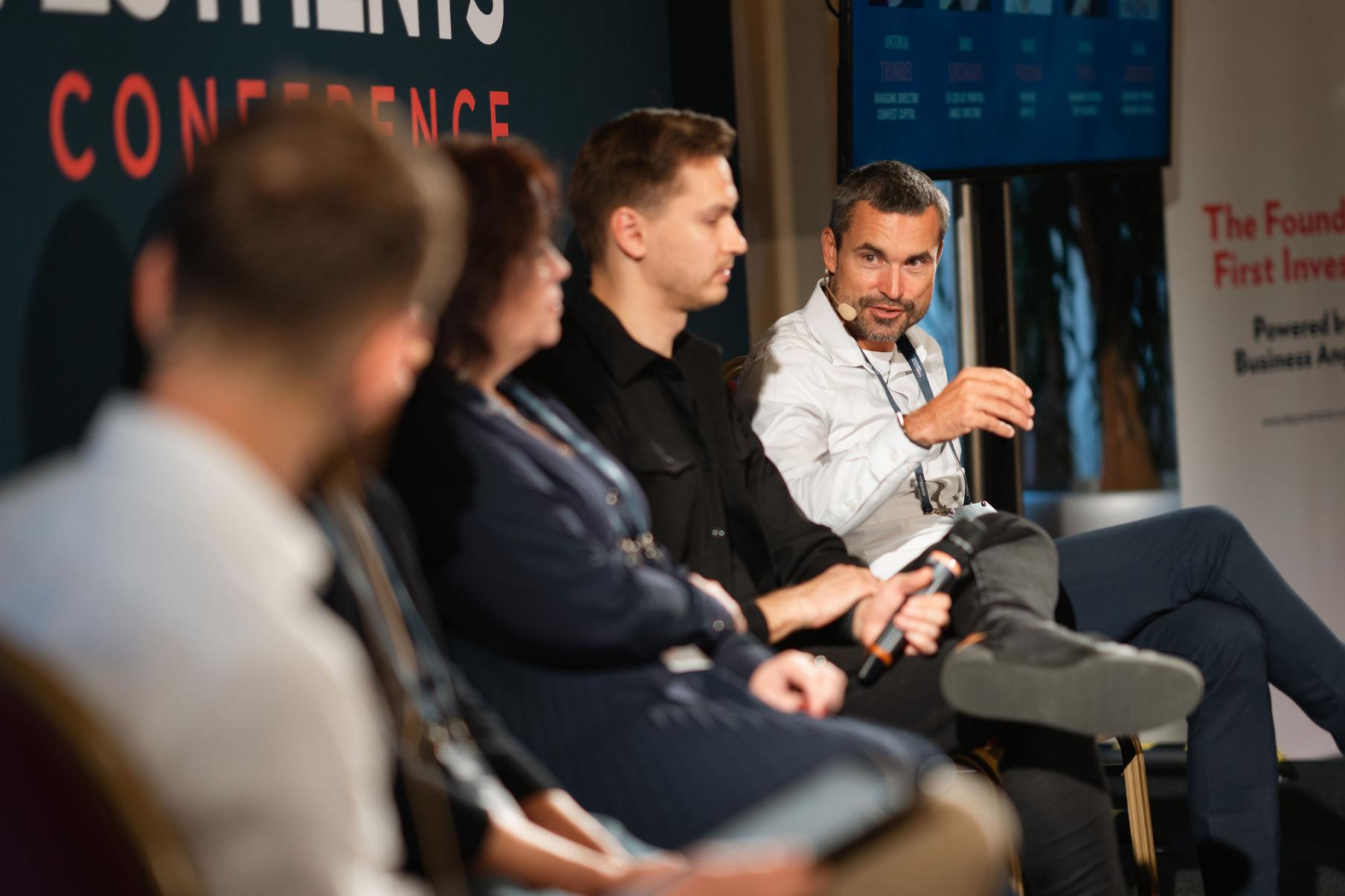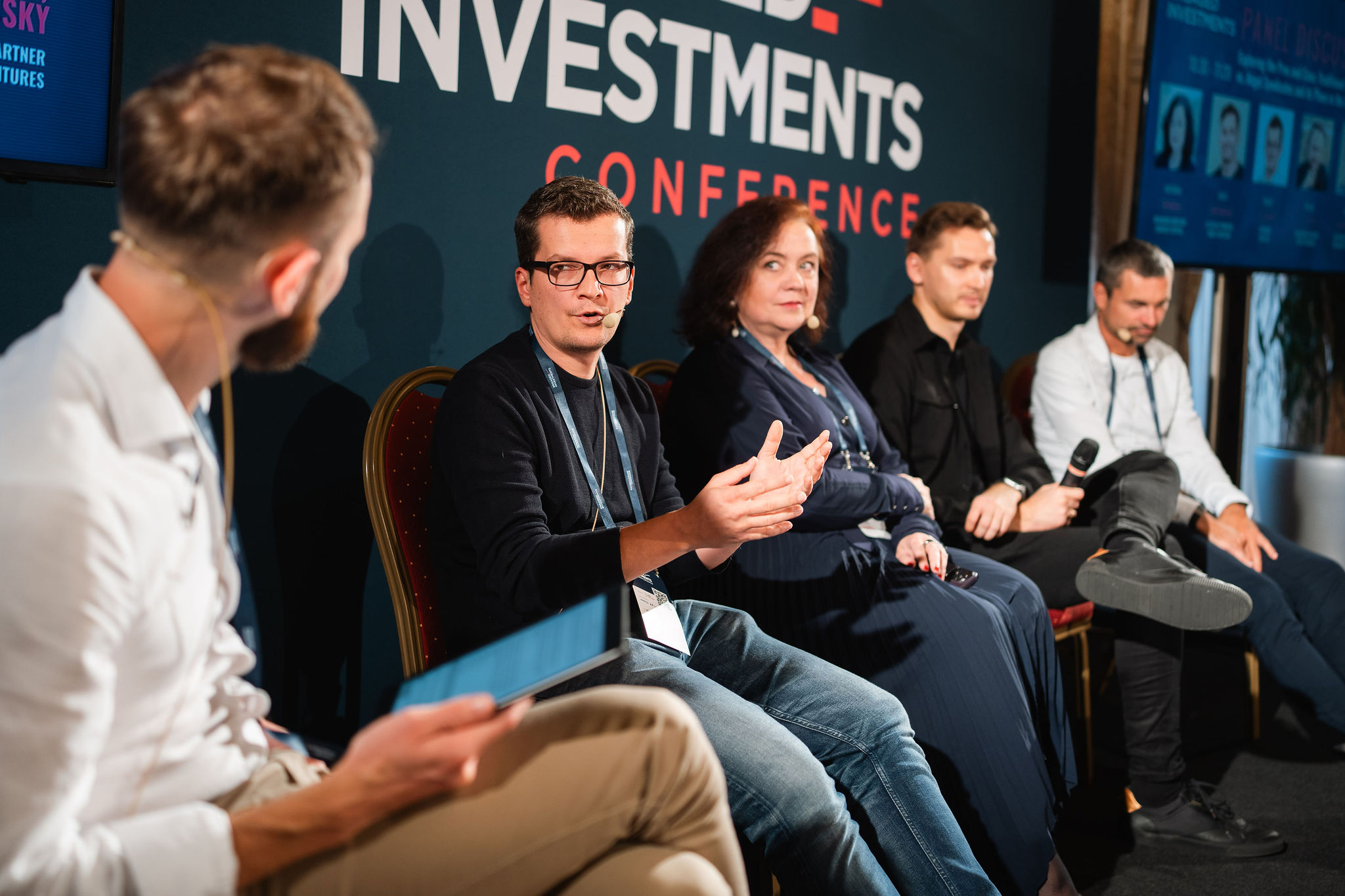„We live in the current ecosystem, and we shouldn’t hope it will change.”
The Engaged Investments Conference's agenda was brimming with inspiring conversations, and one such panel discussion delved deep into the dynamics of start-up investments in the Central and Eastern European (CEE) region. With notable industry experts sharing their experience, the panel, titled "Exploring the Pros and Cons: Traditional VC Funds vs. Angel Syndicates and its Place in the CEE Region," provided a comprehensive exploration of the challenges, trends, and opportunities shaping the landscape.

Embracing Change: The Shift in Investment Trends
While it’s commonly acknowledged that the recent years were not great for fundraising, one should remember that the dynamics across Europe differ. ,,You can’t generalize about the whole Europe, it’s a mistake” argues Viktorija Trimbel, Managing Director at the Coinvest Capital, noting that some countries experienced vibrant growth in the VC sector. She highlights the importance of investing in innovation and shares that her fund has successfully closed numerous rounds this year and is still expecting to close some before the end of it.
Michal Ciffra, Managing Partner at DEPO Ventures, echoes this sentiment by sharing a similar experience at Depo, where they made 12 investments within 12 months. ,,We had to substitute the role of larger VCs who didn’t want to jump in.”
Davis Siksnans, Ex-CEO at Printful and currently an Angel Investor, observes insufficient number of exits on the market, leading to a shortage of new Business Angels. He expresses hope for the return of exits but suggests that start-ups may need to accept lower tickets in the meantime.
Dušan Zábrodský, Investment Partner at Rockaway Ventures, cautions ,,we live in the current ecosystem, and we shouldn’t hope it will change”, emphasizing that to assume a favourable outcome of change is wrong, as it is not certain. Having witnessed various crises, he advocates for adjusting the expectations and continuing to organise exits. Although access to capital is not easy nowadays, investors should ,,stay active and recalibrate the expectations”.
Viktorija Trimbel adds that the current time, when many investors are resistant to take lead, creates a perfect opportunity for those who are less risk-averse. She also believes that one of the crucial challenges in Europe is its fragmentation and the fact that some investors prefer to invest locally ,,It would be beneficial if Europe as a whole was coinvesting across borders, that would help start-ups grow on a global scale”.

VC vs. Angel Syndicates: Advantages and Disadvantages for founders
Discussing the differences between VC funds and Angel syndicates, Davis Siksnans highlighted the expertise that Angels bring, which some VCs may lack.
He also claims that Angels may be quicker to spot good deals and to make decisions.
Tomáš Pačinda, Partner at KAYA VC, emphasized the human factor, stating, "It’s a people business. Depends on who’s your investor... Funds typically have a set strategy, they’re less flexible", nevertheless, he points that VCs are also expected to have expertise in their invested areas.
Asked about the “red flags” to look for in Angel Investors, Viktorija Trimbel jokes that “there are Angels and demons”. She advises that due diligence is done by all- VCs, Angel investors, and start-ups, warning that bad decisions while bootstrapping, may result in being stuck.
Opportunities and Challenges in the CEE Ecosystem
Dušan Zábrodský emphasized the need for a focus on financial management, advising to put more scrutiny into operational and financial plans that companies are building to survive and keep going in the 'new normal'. Davis Siksnans encourages start-ups to think about margins earlier and adopt efficient marketing strategies. Michal Ciffra adds that this advice applies to investors too.
Davis Siksnans also notes that „sometimes the smallest tickets can make the best outcomes”.
As a challenge, Dušan Zábrodský points out the absence of the Baltics effect in the rest of CEE, where exits of successful companies like Skype contributed to a robust Angel ecosystem.
Conclusion
The panel discussion provided valuable insights into the evolving landscape of start-up investments in the CEE region, encouraging adaptability, collaboration, and a focus on sustainable growth. As the ecosystem continues to evolve, investors and start-ups alike are urged to navigate the challenges with resilience and strategic planning.
The discussion was moderated by Michal Ciffra, Managing Partner at DEPO Ventures












